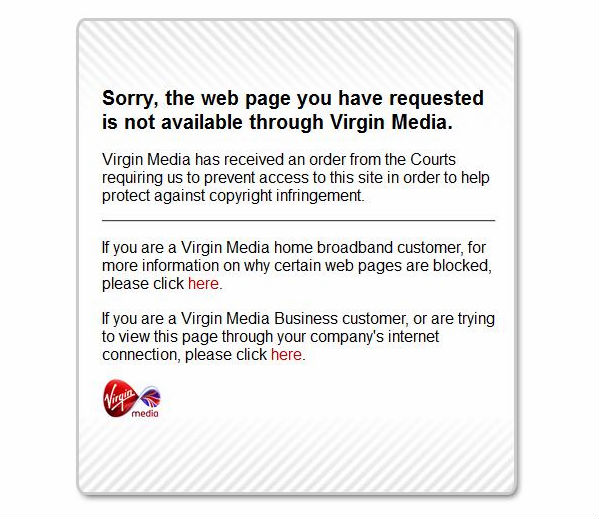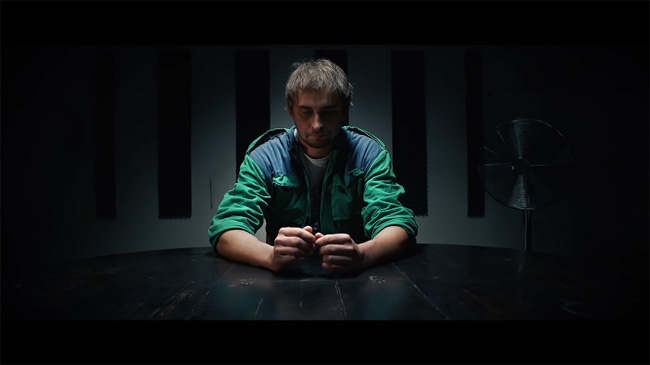 Last month news broke that a brand new flood of copyright infringement threats were about to land with UK-based Internet users.
Last month news broke that a brand new flood of copyright infringement threats were about to land with UK-based Internet users.
“A company called Golden Eye International, which owns rights to several copyrighted films, has claimed that a number of Sky Broadband customers engaged in unlawful file sharing of some of its films,” ISP Sky told its subscribers in a warning letter.
“It’s likely that Golden Eye International will contact you directly and may ask you to pay them compensation.”
It’s taken several weeks but as promised Sky subscribers are now receiving letters from Golden Eye (GEIL) and partner firm Ben Dover Productions (BDP).
“It is with regret that we are writing this letter to you. However, GEIL and BDP are very concerned at the illicit distribution of films over the Internet,” the letter begins.
GEIL then explains that it is not the content owner but “the licensee authorized to enforce breach of copyright” on the adult movie titles referenced in the letters. To protect our sources we aren’t publishing the movie titles but to get an idea of the embarrassment some people are feeling right now, a full list of the movies can be found in GEIL’s license arrangement with BDP, available here (PDF).
As usual GEIL points out that it has hired a “forensic computer analyst” to track alleged infringers. However, in more than one instance it appears that GEIL is accusing people of downloading and sharing content in the summer of 2014. Expecting people to remember what happened so long ago could be a tall order.

“On 26 August 2015 Master Bowles, sitting in the High Court, ordered that SKY UK LTD give disclosure of your name and address, for the purpose of enabling us to send you this letter and if necessary bring legal proceedings against you,” the letter continues.
“In accordance with that Order, SKY UK identified you as the subscriber noted in their systems as on their network associated with the IP address on the date and at the time in question.”
As noted this past weekend ISPs can make mistakes too, but nevertheless GEIL’s letter clearly states that the account holder is assumed to be both the infringer and the user of the relevant computer at the date and time in question.
The company cannot possibly know this for certain since any number of people can have access to a household’s Internet access. Interestingly, they immediately admit that too.

Of course, if people are unaware of any infringement taking place they cannot reasonably be expected to furnish GEIL with that information. And while GEIL say they “may” ask the court to conclude that the account holder was the user of a an unspecified computer on a date 18 months ago, the court is also free to reject that assertion.
It’s also worth noting that GEIL have never engaged in a contested case in court, despite threatening to do so many times previously. What the company actually wants is a confession and hard cash.
“Once your response to this letter is received, GEIL and BDP will be prepared, if we believe that you have behaved unlawfully, to give you the opportunity to avoid legal action by proposing a settlement out of court,” the letter notes.
As previously instructed by the court GEIL is not allowed to ask for a specific amount in its initial letter, but recipients of second letters from the company will probably receive demands of up to £600 to £700 to put the matter to rest.
However, GEIL also tries to lure letter recipients in by suggesting that accidental infringement or that carried out by a child might result in a lower settlement amount being offered.

GEIL concludes by asking for a detailed confession or for the account holder to point the finger at members of their family or friends who have had access to their network.
“Please state whether you admit that you have downloaded the Work and/or made it available for download by others and if so the extent to which you have done so and whether you are prepared in principle to enter into a settlement of the kind outlined above,” GEIL adds.
“If you deny that you have downloaded the Work or made it available for download by others, please explain the basis upon which you deny it, and provide the information that we have requested above about other users of the computer.”
TorrentFreak has spoken to several letter recipients in the past few days. Only one said he was thinking of settling with GEIL.
People looking for legal advice can contact Southampton-based solicitor Michael Coyle who is handling these cases for a fraction of the amount requested by GEIL.
Source: TorrentFreak, for the latest info on copyright, file-sharing, torrent sites and ANONYMOUS VPN services.
 In 2012, as Megaupload’s servers were being closed down in the U.S. and Dotcom’s New Zealand mansion was being raided by armed police, the entrepreneur’s offices in Hong Kong were being turned over by a reported 100 customs officers.
In 2012, as Megaupload’s servers were being closed down in the U.S. and Dotcom’s New Zealand mansion was being raided by armed police, the entrepreneur’s offices in Hong Kong were being turned over by a reported 100 customs officers. Considering the amount of publicity a wrongful DMCA notice can generate these days, it’s no surprise that when a gift of a story presents itself, people are happy to jump on board.
Considering the amount of publicity a wrongful DMCA notice can generate these days, it’s no surprise that when a gift of a story presents itself, people are happy to jump on board.
 In a growing number of countries around Europe, courts have been overwhelmingly willing to order Internet service providers to block pirate sites. In Sweden, spiritual home of The Pirate Bay, copyright holders hoped to achieve the same.
In a growing number of countries around Europe, courts have been overwhelmingly willing to order Internet service providers to block pirate sites. In Sweden, spiritual home of The Pirate Bay, copyright holders hoped to achieve the same. Earlier this month TF
Earlier this month TF  For several years Hollywood studios and international recording labels have engaged in legal action to have ‘pirate’ sites blocked in the UK.
For several years Hollywood studios and international recording labels have engaged in legal action to have ‘pirate’ sites blocked in the UK.
 Acting on a lead from the entertainment industry, in January 2012 the U.S. Government shut down Megaupload.
Acting on a lead from the entertainment industry, in January 2012 the U.S. Government shut down Megaupload. The Pirate Bay is blocked by dozens of ISPs around Europe but anti-piracy outfits have always hoped that one day the notorious site would be rendered inaccessible in Sweden, its country of origin.
The Pirate Bay is blocked by dozens of ISPs around Europe but anti-piracy outfits have always hoped that one day the notorious site would be rendered inaccessible in Sweden, its country of origin. So-called ‘copyright-trolling’ is quite clearly big business as 2015 comes to a close. Often portrayed by content owners as a necessary evil designed to send a deterrent message to pirates, overall the practice is lucrative for the many companies involved.
So-called ‘copyright-trolling’ is quite clearly big business as 2015 comes to a close. Often portrayed by content owners as a necessary evil designed to send a deterrent message to pirates, overall the practice is lucrative for the many companies involved. Over the past 15 years countless individuals have faced financial punishments due to online copyright infringement offenses. But what happens when a case is won by copyright holders but the alleged pirate simply cannot pay?
Over the past 15 years countless individuals have faced financial punishments due to online copyright infringement offenses. But what happens when a case is won by copyright holders but the alleged pirate simply cannot pay?